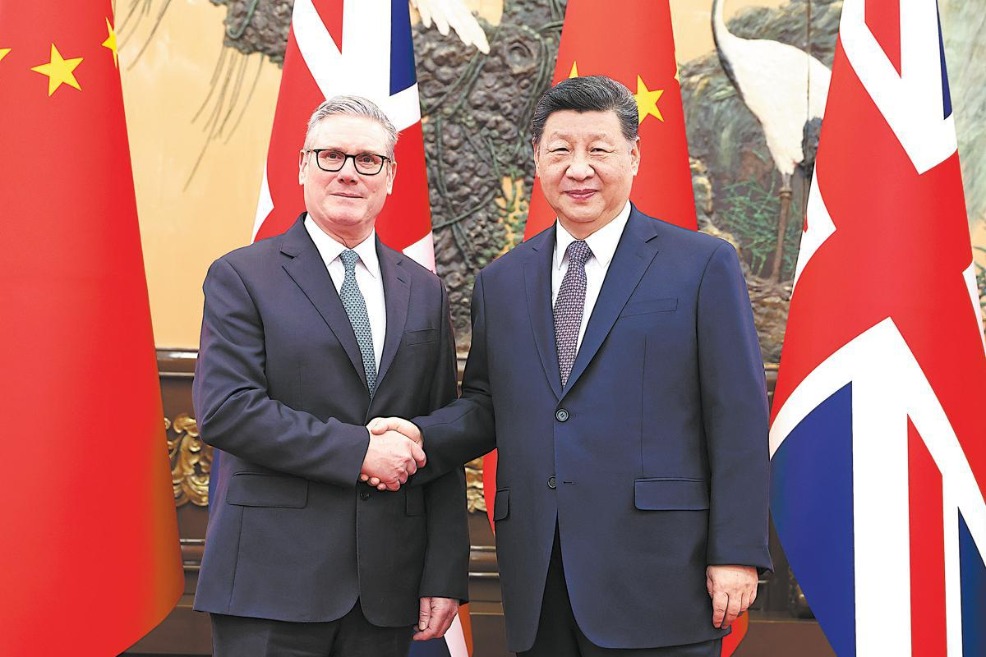Severe Humanitarian Disasters Caused by US Aggressive Wars against Foreign Countries

3. The Major Cause of the Above-Mentioned Humanitarian Crises: The United States' Hegemonic Mentality
When reviewing the many aggressive wars launched by the United States, it can be seen that many of these military actions have led to humanitarian crises. In Afghanistan, Iraq, Syria, and other countries where wars are still ongoing, accidental bombings and injuries still frequently occur, and refugees have nowhere to stay. The infrastructure of these countries is crippled, and their national production is stagnant. The United States launched these foreign wars under the pretext of "humanitarian intervention" or "human rights overriding sovereignty", but why did these wars fought for humanitarian purposes turn into humanitarian disasters in the end?
In April 2011, the US-based magazine Foreign Policy summarized five reasons for the frequent foreign wars waged by the United States, such as the military advantages of the United States making it hard to resist the temptation to resort to force, and the checks and balances mechanism within the United States failing to play an effective role, while excluding any reason related to the values of the United States. "To safeguard human rights" was not a clear driving force for US foreign wars and that waging foreign wars was only a means to an end, although such an act did not exclude a sense of morality.
The United States may feel an impulse to start a foreign war as long as it is considered necessary, believed to be in its own favor, and within its ability, while a sense of morality is not a sufficient or necessary condition to initiate such a war; and as for the terrible humanitarian disasters caused by these foreign wars, they will be borne by others instead of directly harming US citizens and preventing the United States from reaching its goals. Choosing to use force irrespective of the consequences reveals the hegemonic aspirations of the United States, which propel the United States to prioritize itself, demonstrate its "winner-take-all" mentality, and expose its unilateralist ideas of dominating the world and wantonly doing injustice to other countries.
US politicians claim that they respect "universal values", but do they agree that their own natural human rights are also natural for other people in the world?
The United States has formulated laws to ensure equality among all its ethnic groups within the country, but does it really believe that people of other countries should enjoy the same rights? Or, does it think that it can act wantonly in foreign countries just because the people there do not have a vote in US elections?
The United States believes that terrorist attacks targeting civilians within its territory are despicable and punishable, then what makes it accept that the incidents created by the US military in other countries, which have led to a large number of civilian deaths and injuries, are acceptable and even "necessary"?
When they adopt the principle "better to kill by mistake than to miss out by accident", when they arbitrarily use radioactive weapons and destroy all vegetation with toxic reagents, and when they open fire before clearly identifying the targets, do the US forces still respect the "natural" human rights treasured by the values of the United States?
The civilians who were unable to flee their war-affected areas and were treated as terrorists and shot at randomly did not have any human rights. The children who have been disabled at birth by the chemical weapons of the US forces and will suffer for the rest of their lives do not have any human rights. The refugees who have been forced to flee their homes and become homeless in other countries because of the US foreign wars do not have any human rights.
In the final analysis, the mindset of solving disputes by taking unilateral military actions is questionable. Given the inherent antagonism between humanitarianism and hegemony, it is ridiculous to expect a hegemonic country to defend the human rights of other countries. International disputes shall be settled through equal consultations within the framework of the United Nations. Coordinated efforts shall be actualized by regulating and improving international mechanisms and by establishing a community with a shared future for mankind. Only by discarding the hegemonic thinking, which is chiefly motivated by self-interest, can we prevent "humanitarian intervention" from becoming humanitarian disasters. Only in this way can we achieve mutual benefits and win-win results and can all the people across the globe truly enjoy natural human rights.


































